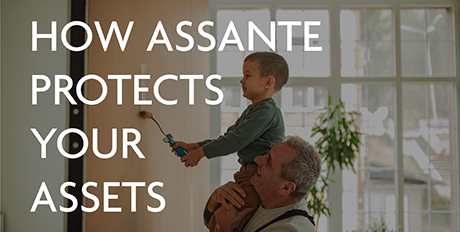Wealth planning is different when you’re single
Jan 11, 2024

According to Statistics Canada, the number of Canadians living alone has reached a record high. In fact, the one-person household is the most common household type.
Financial life is different for singles compared to families or couples without children. Here are some of the ways singles can plan for those differences.
Creating a safety net
Spouses in a couple have the luxury of a second income for support if they lose their job or face another financial hardship. When you’re single, it’s prudent to create a financial safety net to safeguard against a period of lost income.
If you’re self-employed or a business owner, it’s important to have disability insurance to help replace your income if an illness or injury prevents you from working. Critical illness insurance is worth considering as well. It pays a lump-sum benefit if you’re diagnosed with cancer, a heart attack or a stroke.
Even if you’re an employee with group health benefits, you should review the details of your insurance—including how long disability benefits last and the benefit amount of any critical illness insurance. You may want to supplement your coverage with a personal insurance policy.
An emergency fund is especially vital when you’re single. Build an emergency fund of liquid savings in your Tax-Free Savings Account (TFSA) or non-registered savings account to cover at least several months of living expenses.
Planning for retirement
A couple with two incomes can share mortgage payments, household expenses, car payments and a variety of other living costs. A single person must cover these significant expenses on their own, and that can require extra planning or budgeting to put away enough for retirement.
Developing and sticking to an investment plan is critical when you’ll be the only source of income to support your desired retirement lifestyle.
Staying on top of estate planning
When you’re single, it can be easy to put off making a will. However, you’ll have reason to get it done if you identify one or more beneficiaries—perhaps a relative, close friend or charity.
Naming an executor is different when you’re single, as a spouse or adult child are common choices. You may wish to name a sibling, friend or professional executor, such as your lawyer, accountant or a trust company.
Enjoying retirement
Retirement as a single person may come with extra freedom, since there’s no need to compromise on retirement lifestyle decisions. However, couples do have some advantages. A couple can use pension income splitting to reduce their overall income tax. If one spouse has failing health and needs assistance with daily living, the other can help.
As a single retiree, you can help counter these drawbacks with a cash cushion, accumulated before retirement. Think of it as a retirement emergency fund. If you ever need to hire a private healthcare provider, you’ll have the resources, and the fund can help meet any other unexpected costs that may arise.
Talk to us
Another big difference between couples and singles is that couples have someone with whom to discuss wealth planning matters. When you’re single, you may not feel comfortable discussing these issues with a family member or friend. Please feel free to talk to us. We can be a sounding board to help you make informed financial decisions.
Canadians by type of household
A couple with children is often viewed as the traditional household, but there are slightly more households composed of a couple without children—and the one-person household is most common.
Source: Statistics Canada, “Distribution of households by household type,” 2021



